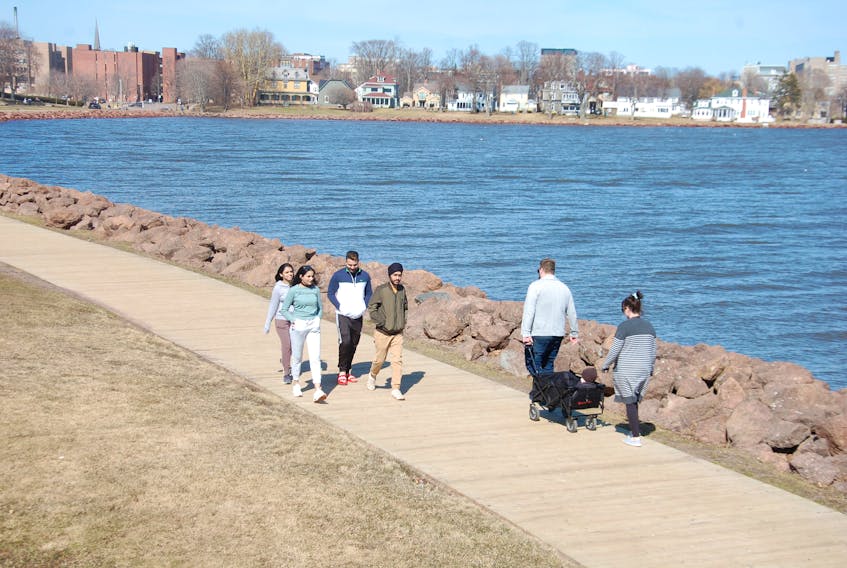It isn’t over.
And there’s still lots to keep in mind.
In all four Atlantic provinces, health officials are looking at loosening aspects of the COVID-19 lockdown — but that doesn’t mean we should let our guard down, or that the rules we’ve all been chafing under can just be dropped or ignored.
There are promising signs in most of the Atlantic provinces, enough that Newfoundland and Labrador is hoping to be able to allow things like retail stores, salons and restaurants to begin operation, with strict guidelines, in early June. In Nova Scotia, the government announced the resumption of short-stay and day surgeries on Wednesday — a reopening of businesses is expected in early June as well, if the number of active cases doesn’t increase.
The reason that we are where we are is that the health officials put strict rules in place, enforced those rules, used aggressive contact tracing to stop virus spread — and, most of all, citizens paid enough attention to the restrictions to stop the first wave pretty much in its tracks.
Prince Edward Island is looking at June 1st to allow out-of-province landowners to come to the island, as long as they obey stringent 14-day self-isolation rules.
New Brunswick — with no active cases as of Thursday — is also expected to lift many restrictions today.
Nova Scotia’s chief medical officer of health, Dr. Robert Strang, went as far as to say, hopefully, that the light is at the end of at least one tunnel: “Wave one is coming to an end, that’s way different than the pandemic being over.”
That’s an opinion that’s being echoed by plenty of those charged with public health in areas where infection numbers are stable or falling — but always with a cautionary note.
“The optimist in me would like to think that maybe it will go away, and the virus will mutate and won’t become worse,” B.C.’s provincial health officer, Dr. Bonnie Henry, said in a CBC interview. “But you know what? We’ve never had a pandemic in recorded history that has not had a second wave.”
The most important point?
The reason that we are where we are is that the health officials put strict rules in place, enforced those rules, used aggressive contact tracing to stop virus spread — and, most of all, citizens paid enough attention to the restrictions to stop the first wave pretty much in its tracks. (Something that could change in any one of the four Atlantic provinces as quickly as you can say “super-spreader visits the grocery store.”)
It’s an impressive effort, and we’ll start to reap the rewards (in terms of more freedoms) soon. But that doesn’t mean the pandemic’s over, or that the same tight restrictions won’t come back at a moment’s notice if infection rates climb.
So, a word to the wise: obey the guidelines that stay in place, and, to the amount possible, stick with the physical distancing methods that have enabled the reduction in infections.
In other words, if it ain’t broke, don’t fix it.








